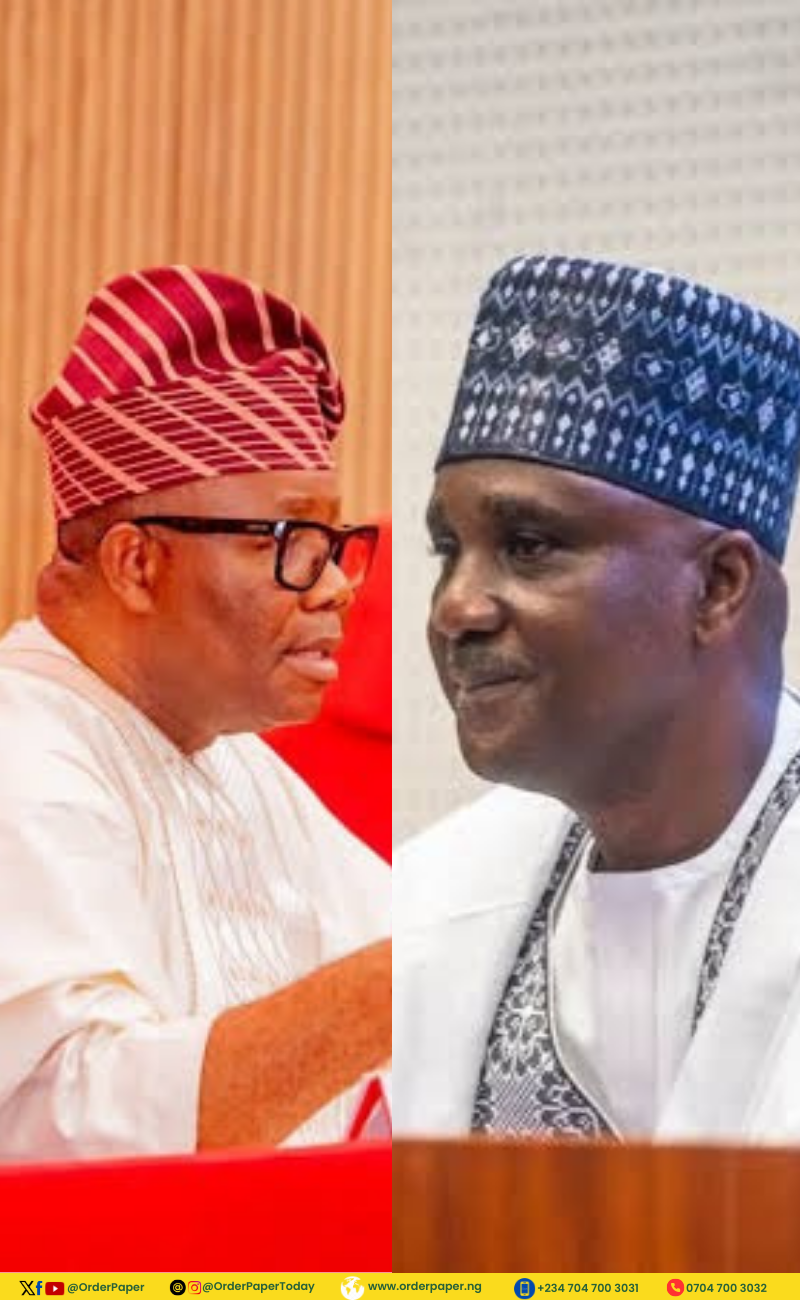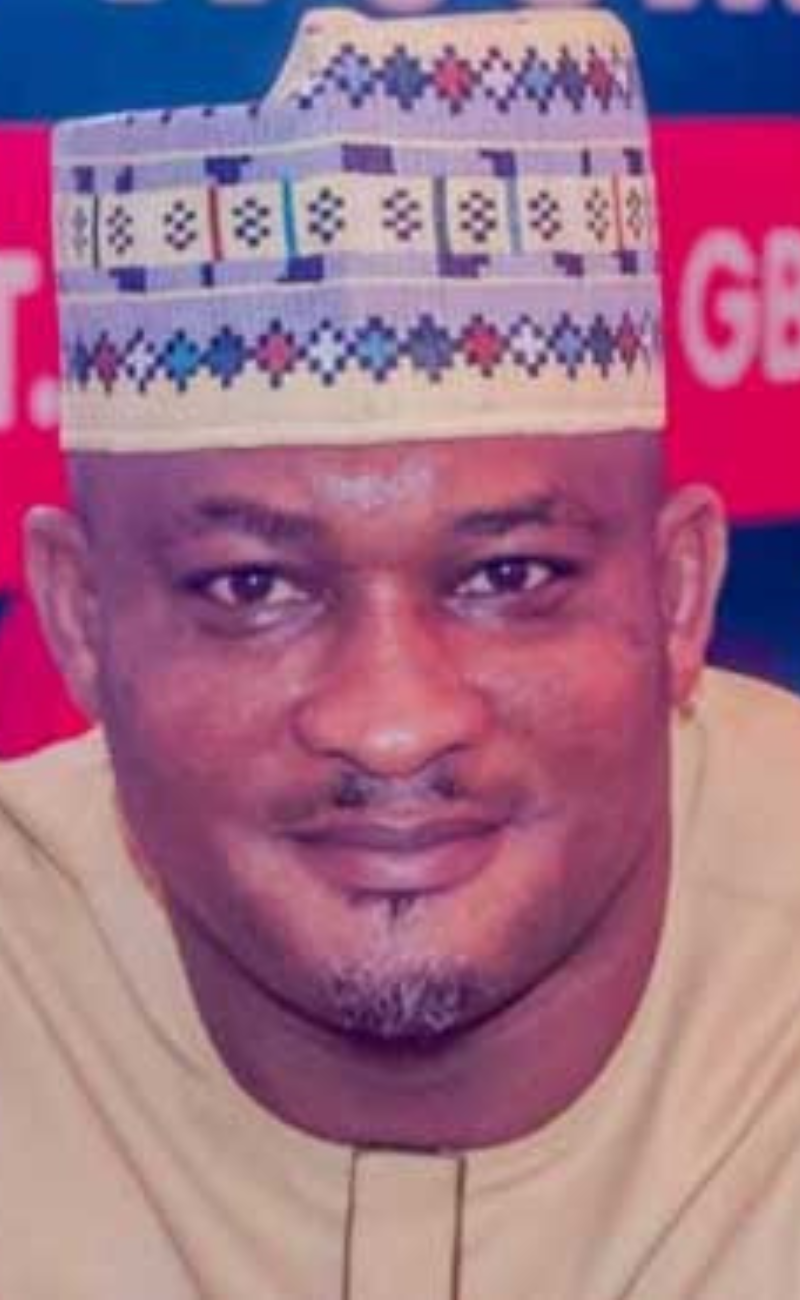Faith Nwadishi, Executive Director of the Center for Transparency Advocacy (CTA), believes transparency is the key to unlocking the development potential of Nigeria’s extractive sector. In this fireside conversation with Parliament Reports, she discusses how accountability can drive equitable growth, reduce conflict, and ensure citizens benefit from the country’s vast natural resources, emphasizing the role of transparency as a guiding light that exposes corruption and fosters sustainable growth. Excerpts:
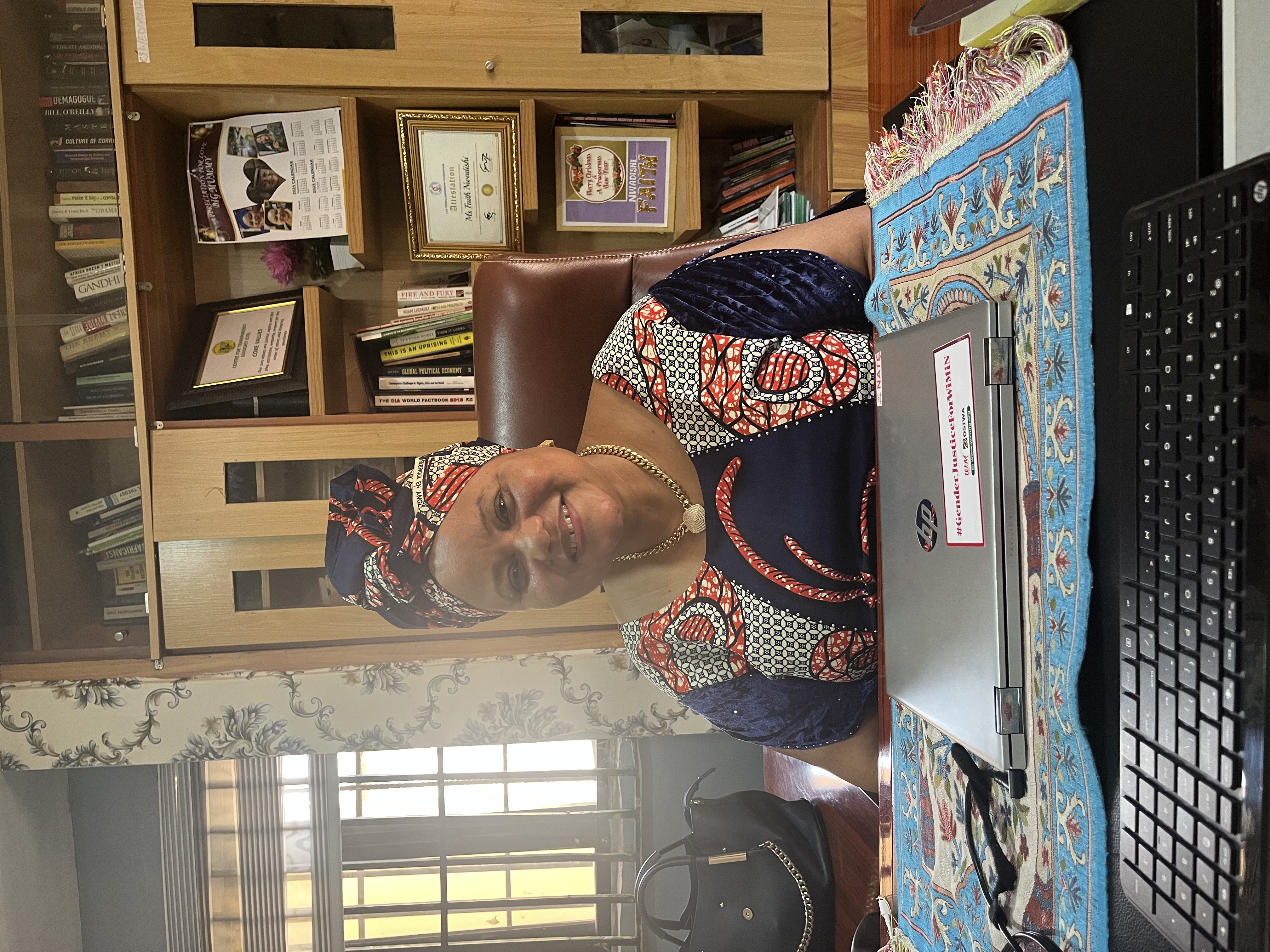
In Brief: Who is Faith Nwadishi?
As the Executive Director of the Center for Transparency Advocacy (CTA), Faith Nwadishi has long been a leading voice in Nigeria’s push for accountability in the extractive industries. With a background steeped in civil society organizing and deep-rooted community engagement, she has worked tirelessly to promote transparency and accountability within Nigeria’s extractive industries.
Her advocacy spans decades, touching everything from contract transparency and community development agreements to strategic partnerships that elevate citizen voices. Her work in extractive governance continues to shape conversations on equity, environmental justice, and sustainable development.
Her advocacy journey began in secondary school, focusing on youth involvement and health-related issues, and continued through university where she served in the student union, was an activist and later, deputy registrar of the legislative house. She was also a part of the ‘Women in Extractives,’ a foremost campaign for gender equity in the sector in Nigeria.
While undergoing compulsory national youth service with the defunct Products, Pipeline Marketing Company (PPMC)- a subsidiariy of the NNPC at the time- she had the privilege of going around the entire subsidiaries of the national oil company and also interfacing with other oil companies like Chevron, Shell, and AGIP. As a youth corp member, she contributed her quota to the sector unaware of the larger path that lies before her.
For her, transparency is not just about exposing wrongdoings but about creating a system where citizens, governments, and companies can work together towards common developmental goals. In this exclusive with Parliament Reports, we dive deep into Nwadishi’s perspective on how transparency can be the catalyst for a more accountable, fair, and thriving Nigeria.
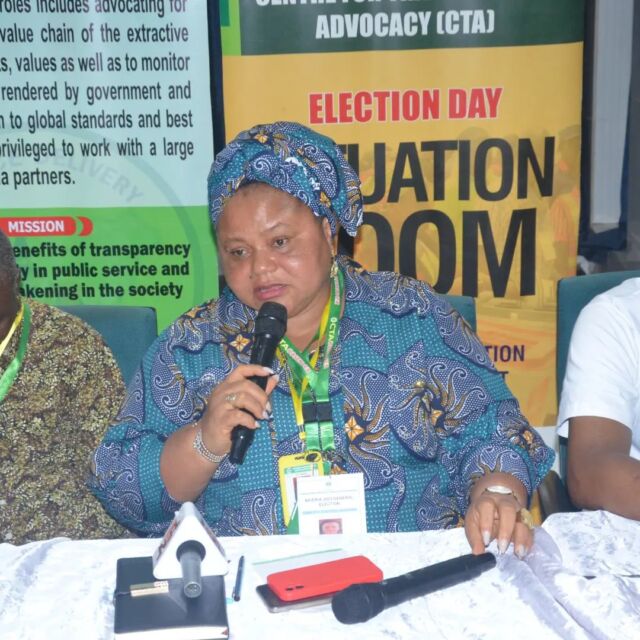
Tell us about Center for Transparency Advocacy (CTA)?
Center for Transparency Advocacy started out as an independent service delivery monitoring group. We acted as a watchdog to monitor the service delivery of government agencies. The Center for Transparency Advocacy started before SERVICOM. Prior to the establishment of Servicom, we had already started offering that service by assessing the different ministries and agencies. Back then, we had a service delivery index. Every year we sent out a Freedom of Information (FOI) to different government agencies to tell us about the budget performance of the last year and what they had done and we ranked them based on that.
We ranked those organizations and created an award system to commend those that were doing very well. However, by the time we sought to register the organization, the CAC refused to grant us a registration so we had to continue as Center for Transparency Advocacy. We continued with the same idea of monitoring service delivery across the value chain of different agencies. We were working together with media organizations and it helped us to raise awareness of the mandate of the different government agencies in excellent service delivery.
For a long time during the tenure of Dr. Joe Abba, the Bureau for Public Service Reforms was always coming first in the rankings. Dr. Joe being the director at that time, had an app that was directly linked to his phone. So if you send an FOI, he will respond to you on the go. I had to try that feature one day when enroute his office. Immediately I got into Abuja on our way to the office, I sent him a message asking to get some information. While we are having that interaction with him, he referenced that somebody just sent him a message. I was surprised the feature was working as promised and I confirmed I was the one who sent the message as a test.
These are the things we do for various agencies. We look at INEC’s mandate on service delivery, NPF’s (Nigeria Police Force) mandate on security and other areas as needed. In a nutshell, while we decided to change our name to Center for Transparency Advocacy is to advocate and also campaign for transparency within the value chain of the mandates of the different services that different government agencies deliver.
What inspires your focus on transparency and reforms in the extractive sector?
I am from the Niger Delta so all my life has been around the extractives. I was part of the early struggles to have environmental justice for the people of the Niger Delta. I come from a community where we have gas flares and we have always lived with that. We didn’t really know what it meant until I started getting information being part of the environmental struggle for justice. Therefore, it was just natural for me to do whatever work I had to do around the extractives. We have had a running battle with the NNPC even before they became NNPCL as we were always looking at the mandate of their services and what they do.
How has the advocacy journey been so far?
As part of efforts to bring information to the people on these aspects, I joined the Publish What You Pay (PWYP) campaign where I rose to become the National Coordinator. From there, I went on to become a member of the African Steering Committee. After which, I became a member of the international board of the EITI (Extractive Industries Transparency Initiative) where I spent 6 years representing Anglophone African civil society actors on the board.
Before joining all of these boards, most of my advocacies and campaigns have been around justice for communities within the extractive sector considering the degradation, especially as it concerns women. Women are not benefiting from the positive impact of what is happening but rather the negative impact.
We’ve had to take talks to the Niger Delta states to engage citizens and create awareness. So there has always been this assurance that this is what we need to do. There’s this injustice that we need to be able to address because you’re only able to address such injustice by being knowledgeable about it.
To advance this course, I founded an organization called Koyenum Immallah Foundation which means you cannot give what you don’t have, which is the whole principle behind all of this. If you are campaigning for environmental justice, then you also need to let people understand what exactly the issues are.
What would you say have been the impacts of the EITI on Nigeria’s extractive sector in terms of transparency and accountability?
There’s been a lot of impact over the years. When the EITI came on board, it was a welcome development and soon became a tool for us to measure for transparency within the extractive sector. The coming of the EITI in Nigeria has helped to expand the knowledge and engagement of citizens on the issues around the extractives, especially at community levels. I was privileged to be on the board where policy decisions are made, sitting down with people from other countries, CEOs of international oil and gas companies, mining companies, and having equal rights to make a decision.
In 2004, when Nigeria started the implementation of the EITI, we as citizens had little or no knowledge about what was happening. Back then, people who were working in NNPC had only surface knowledge. You hear about bunkering, both legal and illegal, but you didn’t know what impact they had on the economy. As a citizen, you were not privy to the impacts these activities had on the people. All of these changed with the coming of the EITI which granted access to some records that citizens would ordinarily not have access to.
The EITI made us to know that even though we keep talking about the volumes of crude oil that we produce every day, the figures are actually a speculation as we do not have actual figures. In the past years, it was a big struggle getting to know details about NNPC’s operations but now the transparency level has increased and things are beginning to shape up. Now, we have people asking about beneficial ownership, contract transparency, gender and environment. So I would say that there’s been progress, there’s been positive impact there, but there’s more is still to be done.
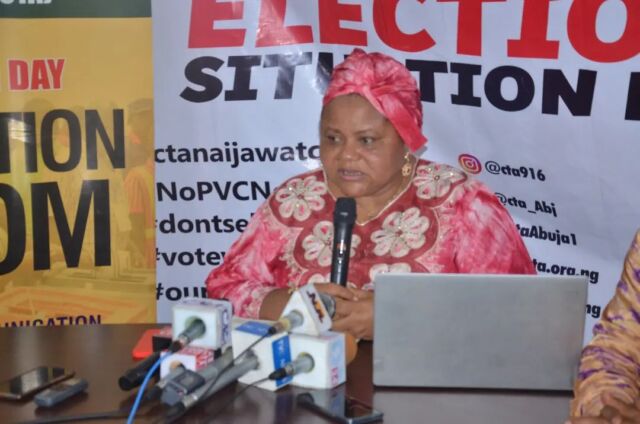
Speaking of citizens awareness, how have you been able to get people well informed of activities that occurs in the oil, gas and mining industry?
It has not been easy, but we now have more organizations that are working on this. I remember some years ago when we went to some communities around my ethnic group in Delta state and we found out people thought that gas flare was more of a blessing to them rather than its negative impact. They described it as shellfire and they believed having shellfire in community makes you a prestigious community. They weren’t able to link the gas flare situation to some of the things that were happening in their communities until we had the sensitisation exercise. Gratefully, their orientation changed after that exercise and they began to take the situation more seriously.
The story is not any different in the mining communities as there are also conflicts within these communities. If you go to a mining community where they are mining gold, they usually have issues with water pollution because of the mercury used in getting the gold out. Once it is washed on the surface, it gets into the drinking water, the earth crust and then mix with the underground water. By the time the water is getting to the people, it is already polluted. Everywhere around the world where they have active mining, there’s always a conflict about water usage. Sometimes, when the government gives concession on the place, they displace people from that community without proper compensation and relocating them to a better place.
So it’s important that community people get to know all of this. Interestingly, they’re getting to know and understand what the issues are. They are coming out to form cooperatives but the efforts is yet to be strengthened enough. We cannot compare what is happening in Latin America, for instance, where they have huge issues on environment. They know what the issues are. They are holding government accountable about it. We have not reached that level yet for Nigeria.
What we need now as a country is beyond legislation. We need the political will of government to call people to order
What role do you think adequate legislation can play in achieving the zero gas emissions goal?
We have been on this issue of gas flares for a while now. In 2014, I was in the US when the World Bank and the UAE launched what they call the ‘end to routine gas flares 2030.’ I made a speech at that event titled a plea for help which the World Bank has translated to over 350 international languages. Before this gathering, we had started this campaign about ending gas flares. In 2005, there was a judgment in the High Court of Benin outlawing gas flare and we have had different dates since then. So when you talk about legislation, we’ve had a couple of that over the years.
To this end, I don’t think legislation would help us as it’s less of a legislative solution and more of a political one. What we need is commitment. We need the political will of government to boldly affirm that we are ending this because they have continuously shifted the goal posts. What we need now as a country is beyond legislation. We need the political will of government to call these people to order. We need to begin to see how we can extract the gas for commercial use than flaring it.
If you study the history, Nigeria is more of a gas country than an oil country. Our gas can power Africa and with the crisis of energy they are having in Europe because of the Ukraine and Russia war, Nigeria can sustainably supply gas even in Europe. But we’re not doing that, we’re not utilizing these openings whereas it’s better to have an economic policy that utilizes gas. Recently, there have been lots of talk about CNG (Compressed Natural Gas) but we have not been able to fully capture the gas that we have.
There have also been talks getting some carbon credits but it’s going to take more than a legislation for us to address the issue of gas. The Minister of Petroleum, who is the President right now, has to put that will in place and get people to monitor an observe it. Sadly, the current penalties for offenders is a slap on the wrist therefore we need higher fines.
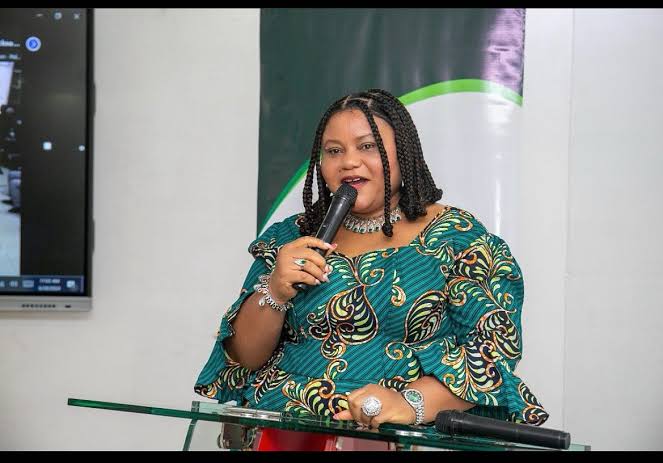
CTA actively involves in pushing for reforms. What can you say have been the major challenges and successes you have recorded in pushing for policy reforms?
Our major challenge is political will. When you are having a conversation with government people who should know about these issues and possess the capacity to help but they’re not interested in it because of the quarter it is being pushed from. So you need to have someone close to the powerhouse to be able to get some support.
Then on the other part of policy, when government starts something and then they take civil society out of it. They started what they call the gas commercialization project, which was actually one of the seven big wins that they had for the extractives sector during the tenure of the former Minister of State for Petroleum, Ibe Kachikwu. They set up the gas commercialization project to get people to come and capture that gas and then utilize it. There was actually a committee that was set up. We were part of that committee and used to meet at the Ministry of Petroleum to have the meeting. We had even strategy on how to engage community, what should be done and all but after a while we were not hearing from them again.
READ ALSO: Tracking Transparency: The importance of NEITI’s audits for Nigerians
So consistency with government is a challenge. You know, following up all of these updates. Some of these things we do are not with donor funding but our own which can be quite challenging.
On successes, we’re big on using FOI as a tool to demand transparency. And as a result of the various campaigns, you can also go to NNPC website and get some useful information unlike before. I’m also happy that there are lots of civil society actors in the sector now who are engaging in the campaign. The movement around the campaign and everything that is happening is success for me. More communities are coming up and getting aware of the issues, especially on the issue of gas flares. The Petroleum Industry Act (PIA) is one major success, stemming from years of advocacy by civil society, government collaboration, and EITI implementation. These are successes I see and things we need to build on to make it better.
Let’s talk a bit about contract transparency. What progress has been made in ensuring that contracts are now more transparent in the extractive industry as opposed to previous times?
I would say the progress that has been made is more than just a little bit as it is not as much as we want to see. Although we can now have access to a few contracts here and there due to the international advocacies around contract transparency and Nigeria’s commitment to the EITI and Open Government Partnership (OGP) issues around contract transparency. For instance, contract transparency entails that transparency begins even at the process of initiation before you sign the contract but what we have currently are contracts that are already signed and executed. So we really need a lot more work done to ensure that every aspect of a contract is transparent for all parties involved. So we know who the owners of the company are and why they have those kind of conditions that they’re signing for contract.
The contract transparency idea is for people to know what you are signing as it help address and reduces expectation. So when the people who own the resources who you’re working for don’t know what you are saying then, it’s as good as nothing.
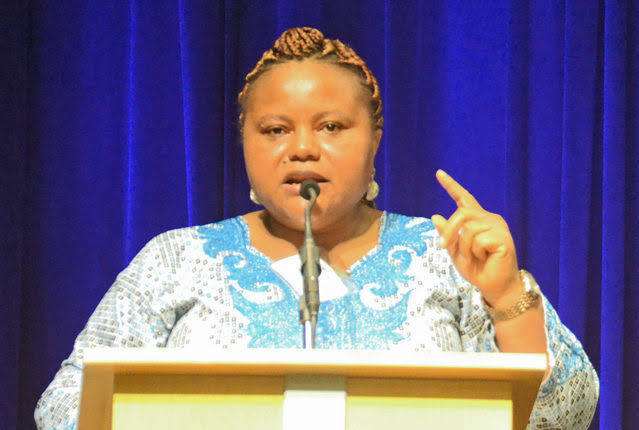
How does CTA engage with MDAs and stakeholders to ensure transparency in the extractive sector?
Our major tool is Freedom of information. We have used freedom of information to engage with the NNPC, TETFUND, FIRS and other agencies on their contracts. For instance, TETFUND spends money from the extractive sector because the companies in the extractive sector pay a percentage as education tax that goes to TETFUND. A lot of people don’t know about that. They just think TETFUND is being funded by other companies whereas the huge chunk of money that is spent by TETFUND comes from the extractive sector. We get those information, analyze it and use it to engage.
Are there specific examples where communities have been positively affected by contract transparency?
Yes, there are a lot of examples. The communities were often engaged with the GMoUs (General Memorandums of Understanding) signed directly with companies, often proving more effective than government contracts.
In the FCT (Federal Capital Territory), we supported communities involved in mining and quarrying to understand and renegotiate their Community Development Agreements (CDAs), which mining companies are mandated to sign by the Minerals Act. One case in Bwari area involved four communities unaware their CDA had expired. The company refused to renegotiate, but we stepped in to train the communities on negotiation strategies. We helped them prioritize projects within the scale of mining activity, rather than companies promising hospitals they wouldn’t build, communities asked for environmental remediation and waste management. One company claimed to have built a palace, but it was just an empty structure. With informed communities, we can now hold companies accountable to real deliverables.
Are there specific strategies that you use to encourage mining and oil companies to disclose their operations and their environmental impact?
Yes, we engage them through advocacy. It’s advocacy that you use and we get them like this kind of initiative of the EITI, you know, we use the structure of the EITI to reach out to them. In Nigeria you have the OPTS, which is the Oil Producers Trade Section (of the Lagos Chamber of Commerce and Industry) which is part of the oil and gas sector. And then you have the Miners association which is taking care of solid minerals. They’re all part of the EITI board in Nigeria. And then you have the civil society representative there who’s that interface between them. So what you’re supposed to be doing is you have all of these campaigns, all of these issues complaints and then you engage those people to be able to bring about that change. But it’s really not easy. It’s not an easy nut to crack. But it’s been easier with the Mining Miners association than with the OPTS.
Speaking on partnerships and collaborations. Your organization has quite a number of partners across diverse projects. How well has this partnership been helpful in advancing your course?
Yeah, there have been a lot of collaborations over the years as that has been one of the key strategies that we use. For instance, we had a collaboration with OrderPaper during the Palladium project, an effective collaboration addressing the Fiscal Responsibility Commission and the reform around fiscal responsibility in the country which has been quite helpful. We’ve also had other collaborations around the parliamentary space as well as with groups like Publish What You Pay, Abuja Original Inhabitants, Persons with Disabilities, and many others.
These collaborations help enhance our work as we do not have all the technical capacity required. There’s no organization that can do it alone. Therefore, collaboration like these help harness the various capacities and interlinks to achieve a communal goal.
We are an oil and gas country, but we don’t have an oil and gas economy.
Your work involves promoting civil society coalitions in the extractive sector. How has it been uniting these diverse groups with slightly diverse interests? Have there been challenges and have you been able to overcome them?
I was once the National Coordinator of Publish What You Pay and it wasn’t an easy one. I also started the women in extractives coalition. Also, I mentored the formation of the students and youth forum on extractives because I believe that we need to work together as a coalition to achieve certain results. Here in Abuja, we have partners across the 36 states. So whenever we have a project, I don’t have to be there physically to join a project as we have people around to work with in every state. It’s always better when you work together in a coalition bringing all these diverse people together.
One of the greatest challenges of running a coalition is managing people’s expectations and getting the people that possess the technical know-how. The greatest mistake anyone can make in running a coalition is just bringing your friends on board. While it’s good to bring your friends, only bring friends that you know are knowledgeable about the issue. If you’re not able to define what you are doing to manage people’s expectations, as soon as money comes into that coalition, that will be the first thing that will destroy the coalition. This is because people are looking at who is getting what? They are not considering the work to be done, how it can be achieved or what the end goal is.
Coalition is very important but it is more important to get the right people who understand the vision to work with you to be able to move the vision to another level. There are people who can do infographics, some can do analysis while others understand the deep issues each community is facing. There are people who can address the community, write very well or speak very well. You cannot find all of that within one organization. Therefore, you need to look for people that will come together in a coalition to be able to achieve all of these.
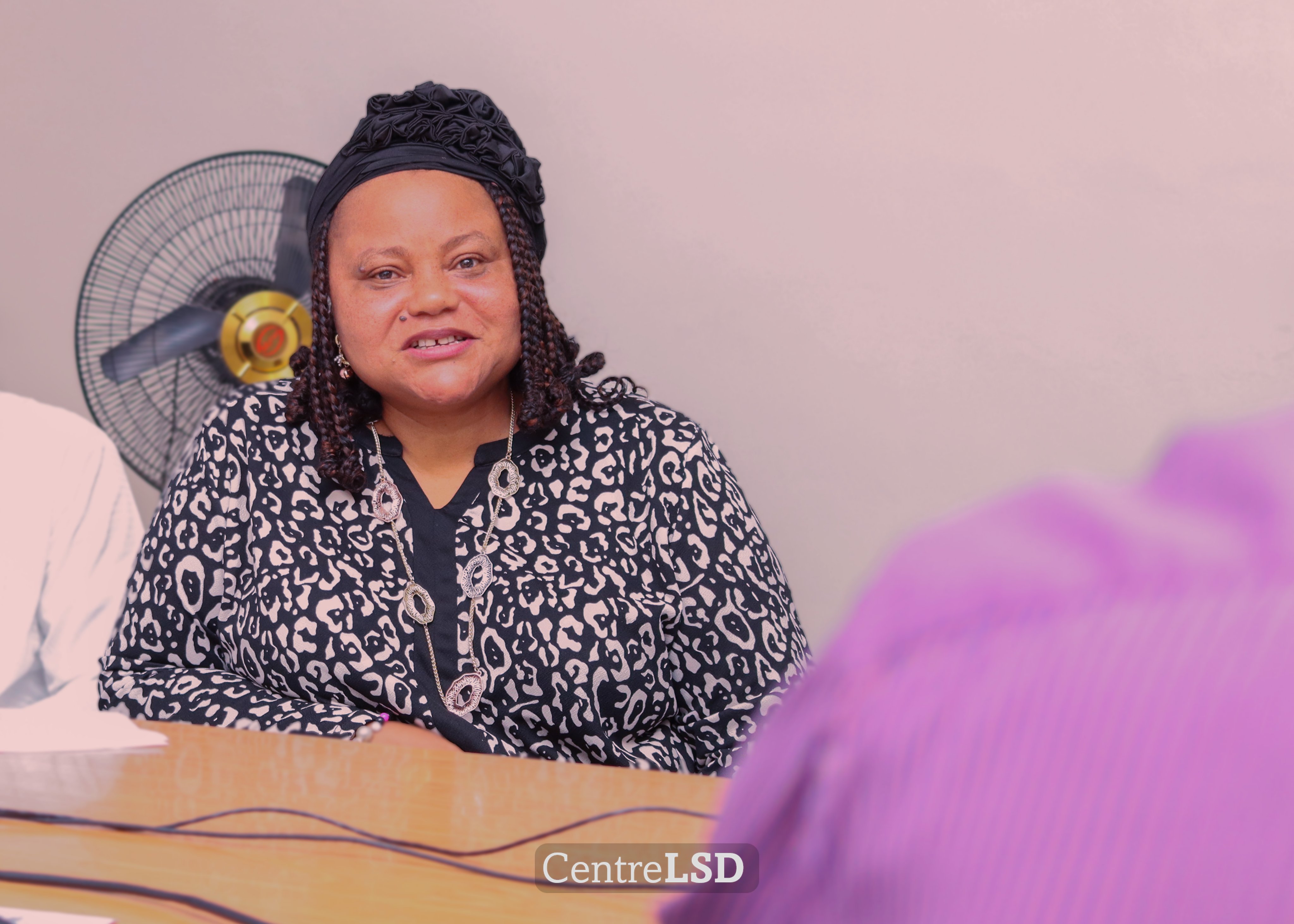
What do you see as opportunities for growth and development in the extractive sector over the next couple of years?
Nigeria is dependent on the extractives and until we have an alternative, that’s the opportunity that we have. Although we have other sources of energy and considering energy transition, we do not yet have concrete plans to actualize that transition. Our problem as a country is lack of sustainability. When Nigeria mined coal, as soon as we saw fuel, we abandoned coal while the people who were telling the world to leave coal were using coal to generate their energy. Just imagine if we had used coal in Enugu to develop a small commercial town in that place.
There is a place in Enugu they call coal town which used to be the commercial hub in those days but now lies in ruins. Those days the rich people were living in this place but all we get out of it is a degraded environment because we left it. Now, we have gas and interestingly, the quantity of gas we have is much more than the quantity of crude oil that we have. But what are we doing to it? We are burning it!
So these are the opportunities to look into. What conversations can we have on these areas? Is it possible that these communities where you are burning all of this gas, turn that gas to energy for those communities and set up small economies around that? Somebody once said that we are an oil and gas country, but we don’t have an oil and gas economy. I was confused at first when I heard. However, when he explained it to me, I now understood it. We are creating jobs for other people and neglecting our people. We are turning our extractive communities into desolate and degraded environment. Imagine if we turn our degraded communities into mini industrial hubs, creating jobs, energy, and most importantly contentment.
People don’t have to come to Abuja to see these skyscrapers as the same buildings can be constructed within their communities with the resources available thereby making that place an industrial hub where people can gain employment. The economy there will be stable and there will be a semblance of stability that you have in those places. So we need to really sit down on the drawing table. For me, this is a huge opportunity. There’s no reason why we shouldn’t be looking at the future, where the world is going. However, we can balance that by looking at how we can use what we have to get what we need.
What would you say are the key priorities for CTA in terms of extractive governance and environmental advocacy?
Our focus is on getting government agencies to implement NEITI report recommendations. There have been some issues that they have talked about and we need to be able to follow that up. For us, we feel that the FOI is a very serious tool that can help to achieve some of this. This is not just about the citizens requesting now but that the government agencies will be proactive. There’s a provision in the FOI that says government agencies should be proactive by having workable website where they input all necessary information that people will be asking. As such, people will not have to write to them before they can get the needed information. We also need enhanced collaboration with agencies and proper oversight from the national assembly.
The FOI has been in existence since 2011 yet some government agencies don’t have a desk officer yet. They were rather asking us to come and train their people. We also work with different groups such as women’s group, NCWS, persons with disability, community leaders and some of them don’t know that the FOI is also applicable to them. They can use it to get information. We’re looking at the FOI and trying to expand it. Just like when we started the campaign especially on the extractives and said you don’t need only technocrats to campaign on their strategies. You need everybody on board. You need community people, you need people who are working in the health sector. You need people working in the education sector. You need people who understand the budget and understand that if there’s a crisis within the extractive sector in Nigeria today, everybody Nigeria’s economy will be in crisis.
Transparency is like sunshine. It is the flicker of light that can change a lot of things.
How can individuals, CSOs and government support CTA?
We need a lot of collaboration and technical support for us to be able to do our work effectively. We need more hands on deck the work we are doing on FOI. To combat misinformation flying around social media, we need the government agencies to give us the right information. Everyone should make use of the FOI to get that information and we can all work collaboratively together to ensure that things will work. Outside the Constitution, I think the FOI is another strong tool that we are not utilizing and we need to change that narrative.
We also need support from funding organizations, and international organizations to be able to reach out to the target audiences. We need to be able to reach more community people. We need the government to open their doors for us to work with and we also need civil society actors to collaborate with one another to work on all of these issues, especially civil society actors that are focused on different thematic areas. We can bring our expertise together and make things work better, easier and faster.
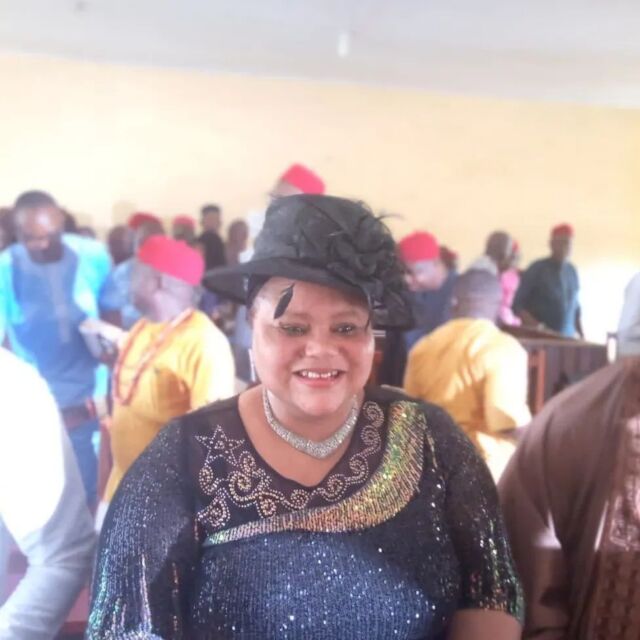
What would you tell the average Nigerian as regards the importance of transparency and proper accountability in the extractive sector?
Transparency is like sunshine. When you have oil on your food, usually they will tell you to put it in the sun and it will just evaporate it. Likewise, the holy books also told us that even in the darkest of nights, a flicker of light can change a lot of things. Transparency is about that light and bringing it into darkness.
Transparency helps to address expectations, reduce conflicts, and bring about development. Transparency does not mean that you want to haunt people because you have the information before you. Rather it is to advise on what the issue is and how to address it. Wherever transparency thrives, everybody benefits. Government benefits, you and I as individuals benefit, community people benefit, our economy benefits and the development of our country is hastened.
What’s your impression of the work OrderPaper does?
There is a lot I admire about your organization. Most especially the REMTRACK project. I do read a lot from the information you give out on the RemTrack project. Your executive director is somebody I respect a lot. And I’m quite happy. By the time I came to know about other people, I’ve been very impressed with the work that you people have been doing, especially the collaboration we had with the Palladium project and then this collaboration and the parliamentary monitoring group that we are having. There’s a lot of innovation around the work that you do, and we are happy to be part of that.


